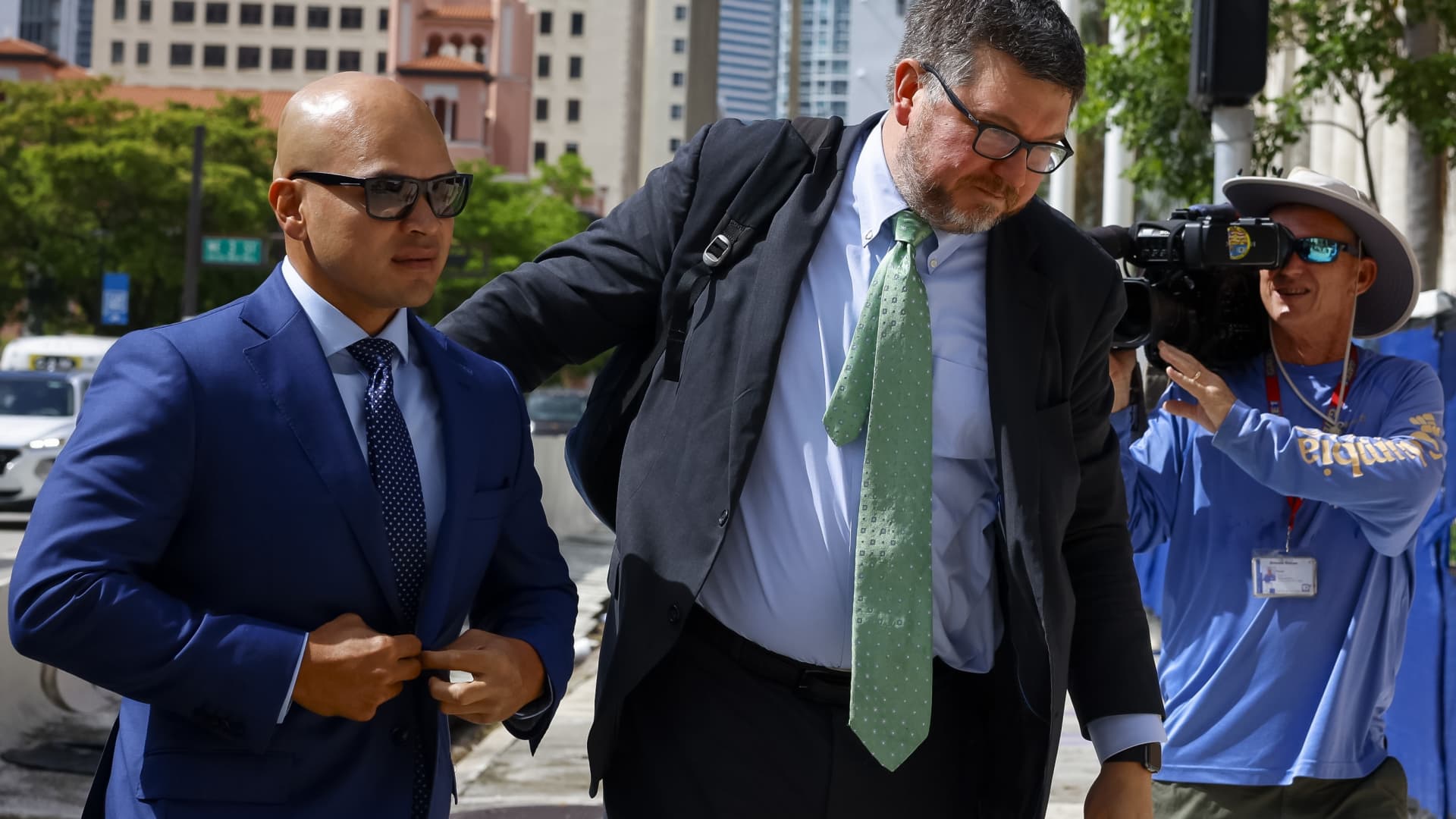Former President Donald Trump on Monday night asked a federal court to hold off on setting a date for the criminal trial over his handling of classified documents, arguing that the unprecedented case requires “a measured consideration and timeline.”
Attorneys for Trump and Walt Nauta, the former president’s valet and co-defendant, also noted that it will be “challenging” for them to prepare for a trial before the Nov. 5, 2024, presidential election, for which Trump is seeking the Republican nomination.
“There is simply no question any trial of this action during the pendency of a Presidential election will impact both the outcome of that election and, importantly, the ability of the Defendants to obtain a fair trial,” the attorneys argued.
Their joint court filing in U.S. District Court for the Southern District of Florida came in response to the Department of Justice, which had already asked the court to delay the start of the trial by nearly four months to mid-December.
But the defense attorneys said that that proposed timeline was “unrealistic,” based on the volume of evidence and special circumstances surrounding the case alone.
Their 12-page filing put forward a slew of reasons to “postpone any consideration of a new trial date.”
They said the case will involve significant legal questions — including one, the “intersection” between the charges against them and the Presidential Records Act, that has “never been addressed by any court.” They also gestured toward the complexities of discussing classified material in a criminal trial and the potential difficulty of selecting a jury during a presidential election.
The attorneys also said they believe the indictment against Trump and Nauta will ultimately be dismissed.
Judge Aileen Cannon, a Trump appointee, had initially scheduled the former president’s criminal trial to start on Aug. 14. Court watchers and legal experts widely expect that the trial will be postponed to a much later date to give the parties adequate time to prepare.
Nauta had only recently pleaded not guilty to the six counts against him because his arraignment was twice delayed. Nauta is charged with conspiracy to obstruct justice, withholding and corruptly concealing documents, and making false representations. Trump was arraigned weeks earlier, pleading not guilty to 37 criminal counts.
The sensitive subject matter at the heart of the case could also lengthen the timeline. Since it centers on the top secret documents stored at Trump’s residence, the case and eventual trial will need to adhere to the federal statute that governs how the proceedings will play out.
The Justice Department and Nauta’s lawyers had clashed earlier Monday about when a pre-trial hearing focused on that statute, called the Classified Information Procedures Act or CIPA, should take place. The DOJ opposed Nauta’s request to delay that hearing, which was set for Friday, arguing it was unnecessary.
In a subsequent filing Monday evening, Trump’s attorneys said they had struck an agreement with the DOJ to hold the CIPA hearing Tuesday, July 18.





